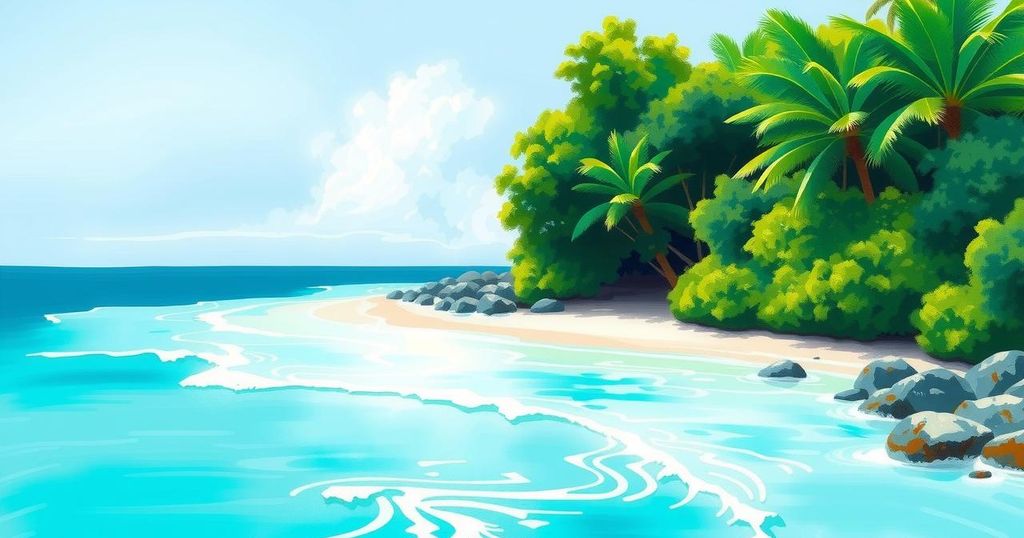Protests Erupt in Mauritius Over British Control of Chagos Islands
Recent protests in Mauritius challenged British control over the Chagos Islands, with demonstrators calling for sovereignty restoration and acknowledgment of Chagossian rights. The movements spotlight historical grievances and the broader discourse on colonialism and human rights, as Mauritius seeks to reclaim its territory. International pressure mounts amidst ongoing negotiations between Britain and Mauritius about the islands’ future.
A recent protest has shifted focus towards the territorial dispute involving the Chagos Islands, which are situated in the Indian Ocean. Activists in Mauritius gathered to voice their discontent over British control of the islands, a situation that has stirred longstanding sentiments since the islands were forcibly depopulated in the 1960s to make way for a U.S. military base. These events highlight the ongoing tensions and issues surrounding sovereignty, colonial legacy, and human rights.
The Chagos Islands, officially known as the British Indian Ocean Territory, has been under British administration since the late 18th century, but the local population was evicted in the 1960s. Many protestors argue that the sovereignty claims by Britain over the islands are unjust and demand their return. The Mauritian government has supported these protests, emphasizing the need for restoration of rights for those whose ancestors inhabited the islands.
While Britain maintains that its control allows for strategic military operations in the region, there is increasing international pressure and calls for the decolonization of the Chagos Islands. The United Nations has previously recognized Mauritius’s sovereignty over the territory, but Britain has yet to comply fully with such international directives. It poses complex questions regarding colonial legacy and accountability.
During the demonstration, many demonstrators held placards calling for an end to colonial practices and for Britain to acknowledge the rights of the Chagossians. Some protesters highlighted the plight of the Chagossians, who have been denied the right to return to their homeland. This protest is just one among many, as global discussions continue regarding colonial practices and reparative justice.
Conversations about ownership and rightful governance over the Chagos Islands are poised to continue, reflecting deeper historical grievances. The events in Mauritius serve not only as a rallying cry for justice but also as a critical examination of how nations address historical injustices inflicted during colonial rule. The complexities of this issue will require ongoing dialogue and cooperation from both nations.
The recent protests in Mauritius focusing on the Chagos Islands underscore ongoing tensions regarding British colonial control and the rights of the Chagossians. Activists demand the restoration of sovereignty and a return to their homeland, while international discussions continue about colonial legacies and historical injustices. This situation illustrates the complex relationship between post-colonial nations and the remnants of colonial rule, making it crucial for all parties involved to engage in resolution efforts.
Original Source: www.ncnewsonline.com




Post Comment